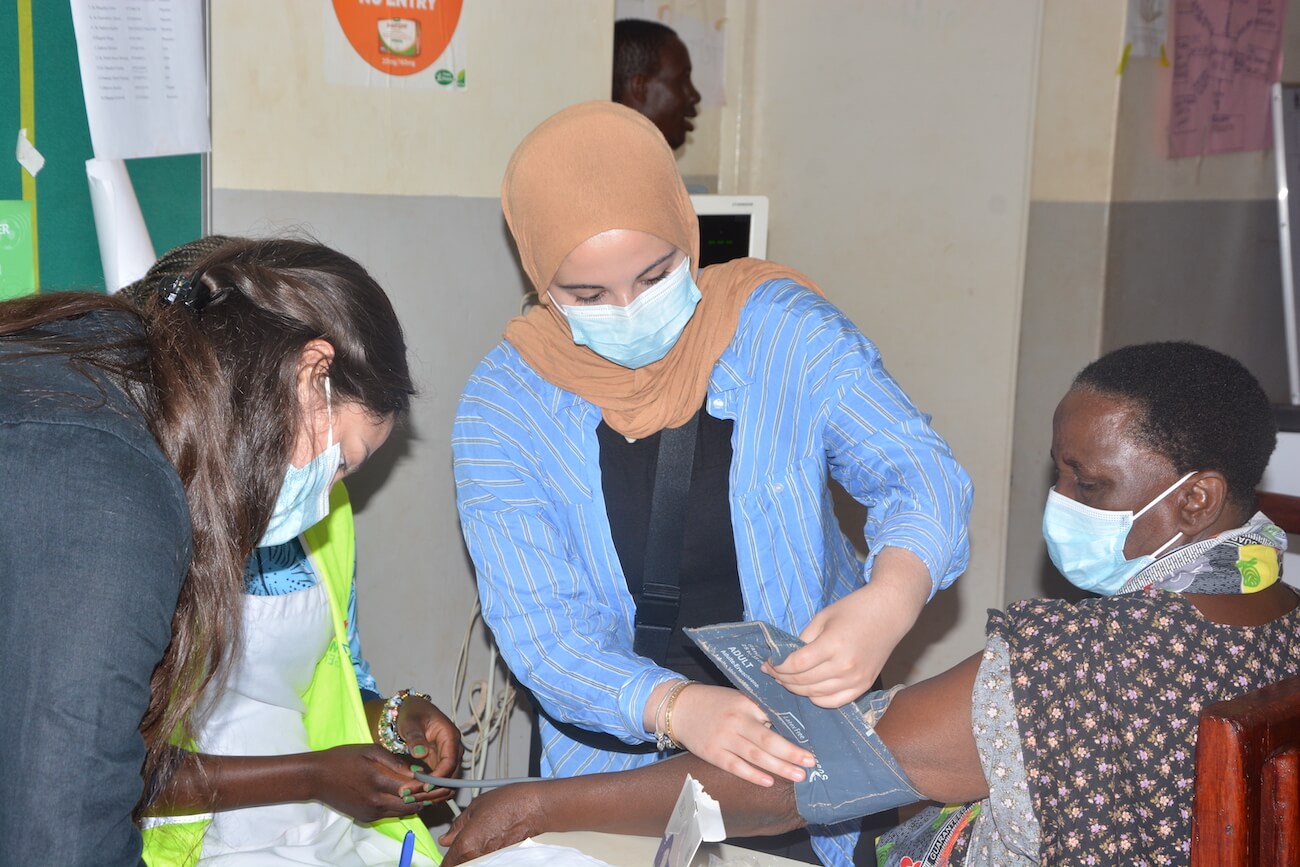Reflecting the significant need for accessible healthcare services in the region, Embrace Relief and its partners at the Nile Humanitarian Development Agency (NDHA), Youth Island NY and the Brooklyn Amity School teamed up to provide free essential medical care to more than 1,050 area residents at a two-day medical camp (Aug. 5-6, 2024) at the Walukuba Health Center in Jinja Walukuba, Uganda.
Operated through our local partners at the NHDA, this camp provided free health screenings, lab tests, and medicine to diagnose and treat health conditions including skin infections, respiratory tract infections, urinary tract infections, malaria, HIV, and hepatitis B.
An outstanding team of 40 staff personnel – composed of doctors, pharmacists, lab technicians, nurses, support staff and volunteers from Embrace Relief and Youth Island – helped the camp operate smoothly and efficiently, and ensured all patients were taken care of in a compassionate, careful manner.
Embrace Relief would like to offer sincere thanks to the students at Brooklyn Amity School and Youth Island NY for their support in raising funds to make this camp possible. We would also like to thank our partners at the Nile Humanitarian Development Agency for hosting and operating this event and for its commitment to providing critical medical aid to those in need.
Immediate treatment and long-term preventative care
In a region where medical care is often either inadequate or inaccessible to much of the population, this camp provided a critical service that will have significant positive effects on the health of surrounding communities for years to come.
The Jinja camp made an important impact through its approach of providing short-term treatments and medication alongside long-term preventative care. Over the two-day event, camp staff used laboratory test data to provide immediate relief from suffering caused by acute diseases such as heptatitis, HIV, and malaria. Just as importantly, however, lab testing enabled the early detection of long-term health conditions including diabetes, high blood pressure, and heart disease, and allowed doctors to provide early treatment to those at risk. This preventative care is critical for long-term community health outcomes, and will extend patients’ quality of life significantly.
Of similar importance, the camp provided a critical resource for vulnerable people who often lack access to quality healthcare. This is best reflected in a startling statistic: more than 70 percent of the more than 1,000 patients treated at this two-day camp were women. Many women in Uganda face a number of barriers to accessing care, including socioeconomic factors, cultural norms, and limited decision-making power. The camp’s success in reaching a large number of female patients underscores its positive impact in addressing this disparity.
Finally, the camp distributed a number of medications and treatments that are often difficult for many vulnerable people to access. Treatments provided for patients at the camp included antibiotics, pain relief and anti-inflammatory medication, antifungal medications, vitamins and supplements, cardiovascular medications, anti-ulcer medication, anti-histamines, and anti-diarrheal treatments. This reflected a comprehensive approach that ensured that each patient received an appropriate treatment for their specific need.





















